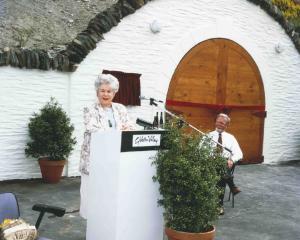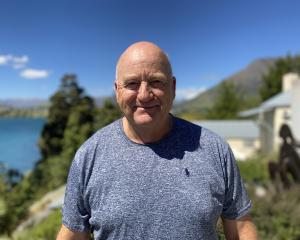
The proposal, which is still being firmed up before final approval is sought, involves 780 houses in the Malaghan Valley, a gondola up Coronet Peak, a "world-class" mountain bike hub and two schools.
Local-based tech entrepreneur Rod Drury, the gondola’s likely funder, has pulled out.
So has iwi-led environmental organisation Te Tapu o Tane, which had planned a base there.
Another partner, NZSki, which operates the Coronet Peak skifield, was not involved at present, chief executive Paul Anderson said.
Coronet Peak Station owner Bernard Cleary is the last high-profile backer of the proposal still involved.
"It’s very much a Cleary-led project going forward, so it’s not so much a consortium approach", village planner Ben Farrell said.
"We’re still going through the whole engagement of talking to people and refining the project."
Mr Drury, who has helped fund mountain bike tracks on Coronet Peak and elsewhere, conceived the gondola idea as part of his plan to electrify Queenstown and take cars off Coronet Peak Rd.
His chief executive, Jenna Adamson, said he had pulled back to focus on delivering a mass rapid transport cable car network for Queenstown.
"This project is more closely aligned with the community’s immediate needs and offers a more economically viable solution that would be integrated into Queenstown’s multi-modal transport system.
"We may revisit our involvement down the track," Ms Adamson said.
Mr Drury said the bottom of Coronet Peak was "probably not quite the right spot" for intensive housing, and concerns over it were "valid".
Asked if he was disappointed Mr Drury had pulled back, Mr Farrell said: "I’m not going to comment on that".
"Obviously, I mean, he had a great vision, but that’s why we’re rethinking.
"The opportunities there for commercial recreation and a globally attractive recreation commercial hub are outstanding.
"And just because Rod’s out doesn’t mean that still can’t happen.
"Look, the Cleary family, they’ve got the capital, so I guess Rod was a nice-to-have."
Mr Farrell — who last week announced he was standing for the Otago Regional Council in this year’s election — confirmed Te Tapu o Tane, which came along with Mr Drury, was also no longer involved.
Chief executive Janas Davis could not be contacted this week, but last year he said he could not support "intensive housing".
James Hall, chairman of the Malaghans Valley Protection Society, which fears housing will destroy the area’s rural character, is not surprised Mr Drury and Mr Davis have backed out and has thanked them for doing so.
"It’s not saying, ‘don’t put development in’. [It’s fine] as long as it’s planned and well thought through, but just a speculative, opportunistic thing like 780 houses in the headwaters of Lake Hayes is just outrageous."












